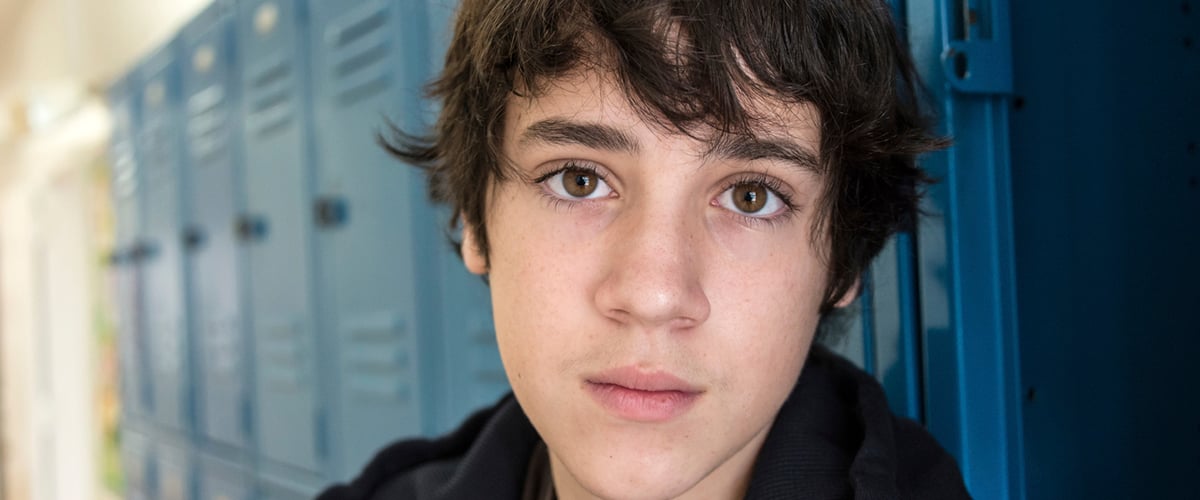
My Child’s Just Been Diagnosed With a Disability – What Now?
It’s been almost three years now, but Jim McKenzie* still remembers the moment with crystal clarity. He and his wife Marie were sitting nervously in a small conference room at the clinic when they received the news — their 3-year-old son Jason had just been diagnosed with Autism Spectrum Disorder.
The first words out of Jim’s mouth might seem surprising or selfish or worse, if you haven’t been in his situation: “Is he going to be able to play football?” Jim asked the pediatrician.
Hearing the news that your child has a disability of any kind is a tremendous shock. “Judge me if you want to,” says Jim, “but it was the first thing that hit me. Sports have always been such a big part of my life. I had played basketball and football in high school and I just wanted my son to experience that, too.”
Jim managed to hold it together until the couple reached the parking lot. He climbed into his pickup truck, closed the door quietly and burst into tears.
“At that moment I was just devastated,” he said. “I could not believe this was happening to us, but I’m sure a lot of parents feel that way.” Surprise. Concern. Confusion. These are all valid reactions when your child is diagnosed with a disability, developmental delay, or mental health issue. There’s a tendency to fear the worst, to worry about money and doctor visits and what the neighbors are going to say. There’s often disbelief and denial, too.
“We were first-time parents,” Jim said, “and we didn’t have anything to compare it to. We knew nothing about autism and we were scared.”
At that point, Jim and Marie did what most parents do — they began searching for information, support, and services and they sought professional help.
Over time they’ve adapted to Jason’s public outbursts and learned ways to help prevent them, and they’ve found plenty of family activities he can participate in. Jason might not be on the football team but with the help of friends and family and professionals who care, the McKenzies are doing well.
What would you do if you learned that your child has a disability? How would you react?
There’s no single right answer or path for any family, but here are some steps to consider:
1. Don’t Be Afraid To Ask Questions
It’s really important to gather as much information as possible about your child’s disability and the impact it might have. The more you know, the better you will be able to support your child.
“We didn’t have any idea what to do in our situation,” Jim said. “We just kept asking questions.”
Don’t be afraid to ask for more information or look for other ways to get support from organizations such as Autism Speaks . PACER also offers a number of helpful resources for parents of young children with disabilities at PACER.org/ec. The handout When Should Parents be Concerned About Their Child’s Behavior is a helpful checklist for parents about the most common concerns.
2. Adapt to Your New Reality
Many parents find themselves in denial at first, which is perfectly understandable, but at some point you need to move on and focus on what you can do to help your child. Before the diagnosis, Jim and Marie’s family members reassured them that there was nothing wrong with Jason, and the couple had tried to ignore their son’s unusual behavior.
“They may have meant well but we knew something was wrong,” Marie said. “To me not knowing is worse than finding out what the issue is.”
3. Pursue Early Intervention
Once your child has been evaluated and you’ve received a diagnosis, it’s time to begin early intervention . Children with disabilities of any type can make progress and the sooner you get them the help they need, the better off you and your child will be.
4.Don’t Be Afraid To Dream Big
Just because your son may not become the star quarterback or win a state championship, doesn’t mean that he can’t achieve great things.
“I used to think that if someone has a disability that they weren’t capable of much, and that’s just wrong,” Jim said. “There are plenty of things that Jason can do but sometimes he needs to be pushed just like any other kid.”
5. Remember, You Are Your Child’s Support Team
As a parent, you are the person who believes the most in your child’s potential, and can have the most impact on helping him or her succeed. It could be earning a high school diploma or competing in Special Olympics, or maybe the goal is something much simpler. Jim and Marie’s objective is to provide Jason with every opportunity he can possibly have.
“It can be hard sometimes – really, really hard,” Jim admitted, “but I try every day to help him, to encourage him, to try and lift him up. Having a child is a gift, it’s a blessing, and you need to embrace it.”
Do you have a child with a disability? Based on your personal experiences, are there words of advice you could offer other parents whose child has recently been diagnosed. Please share your stories and offer ideas to help other parents.
*The names of family members have been changed to protect their privacy.
